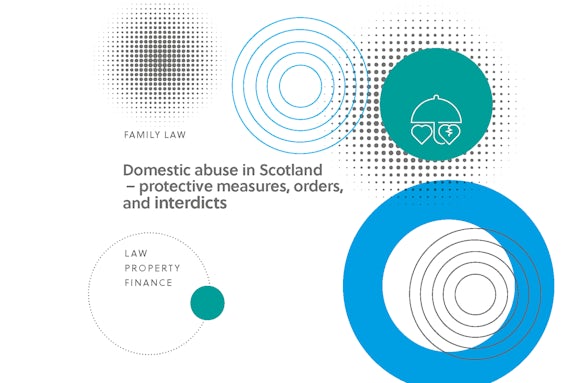The headlines have recently been dominated by the increase in crimes against women. Her Majesties’ Inspector of Constabulary announced two weeks ago that crimes again women and girls should be highlighted in strategic policing requirement, and given the same priority as counter-terrorism, county lines and organised crime. The inspectorate found problems, uneveness and inconsistencies in dealing with the epidemic of violence against female victims in the UK.
The Domestic Abuse (Scotland) Act 2018
In Scotland, the Domestic Abuse (Scotland) Act 2018, which came into force in April 2019, created an offence with respect to the engaging by a person in a course of behaviour which is abusive of the person’s partner or ex-partner. We are now seeing a number of cases being successfully prosecuted in accordance with this Act.
The Domestic Abuse (Protection) (Scotland) Act 2021, which it is anticipated will come into force in the very near future, will allow senior constables to make a domestic abuse protection notice in relation to a person if they have reasonable grounds for believing a person has engaged in behaviour which is abusive of a partner, or ex-partner. This order will allow the police to put in place protective measures at a very early stage. As matters currently stand, until a non-harassment order, or similar order, is granted by the criminal court, victims of domestic abuse find themselves in a state of flux, unless they themselves ask the civil court to grant protective orders. With the severe backlog of criminal cases, it can be months before a substantive hearing takes place in the criminal court.
The effect of such notices in Scotland are likely to be slightly further ranging that the notices that have been introduced in England (in the Domestic Abuse Act 2021, which commenced on 1 October 2021), and will require the recipient of the notice:
(a) to leave any place where the abused person lives (even if it is the perpetrator’s main place of residence),
(b) to surrender keys to any such place; and to prohibit that person from
(c) entering any such place,
(d) from coming within such distance of any such place as is specified in the notice,
(e) from excluding the suspected abused person from any such place,
(f) from approaching or contacting, or attempting to approach or contact the suspected abused person; and prohibits them
(g) from approaching or contacting, or attempting to approach or contact, any child usually residing with the suspected abused person.
Protective Orders
It is however also possible to obtain protective orders against a partner, or ex-partner, in the civil courts, on an urgent basis. We anticipate that even once the police can issue domestic abuse notices, people may wish to nonetheless ask the civil court to grant protective orders. Breaching a civil non-harassment order is a criminal offence in itself, and the recipient could be sentenced with a fine of imprisonment. It is also a criminal offence to breach a civil interdict which has a power of arrest attached to it. Orders can also be sought to exclude an abusive partner, or ex-partner from your property. All of these orders can be obtained in the Family Court on an urgent basis, and indeed on an initial interim basis, pending a proof (civil trial), meaning that a civil non-harassment order, or interdict, could be granted within weeks, as opposed to months, or years.
If you wish to discuss the possibility of obtaining a civil protective order against a partner, or ex-partner, you should contact a Family Law solicitor, as your action would be raised in the specialist family division of the local Sheriff Court, or the Court of Session. If you cannot afford to pay privately, then you may qualify for legal aid to obtain these protective orders, and should still nonetheless seek advice.
If you would like further information regarding the topics discussed in this blog, please contact:
Shona Young by email: syoung@gilsongray.co.uk or by phone 0131 285 4801 / 07841 922 640
You can also visit our Family Law Team page by clicking here.








